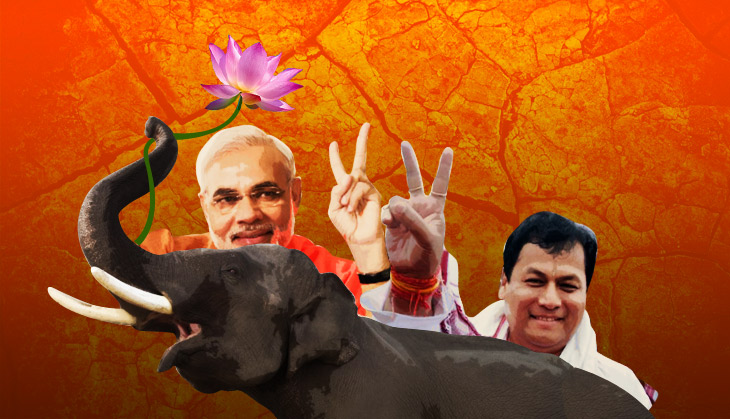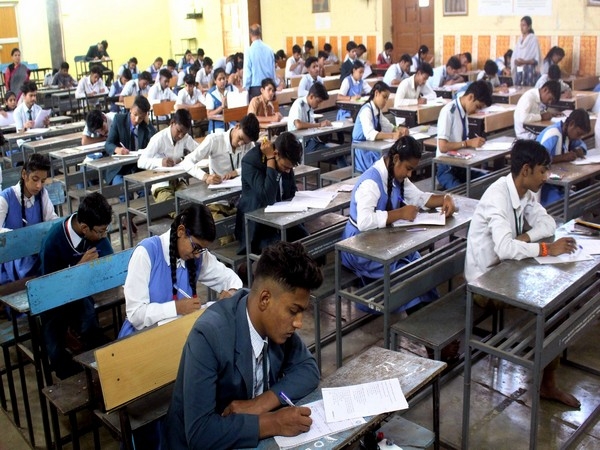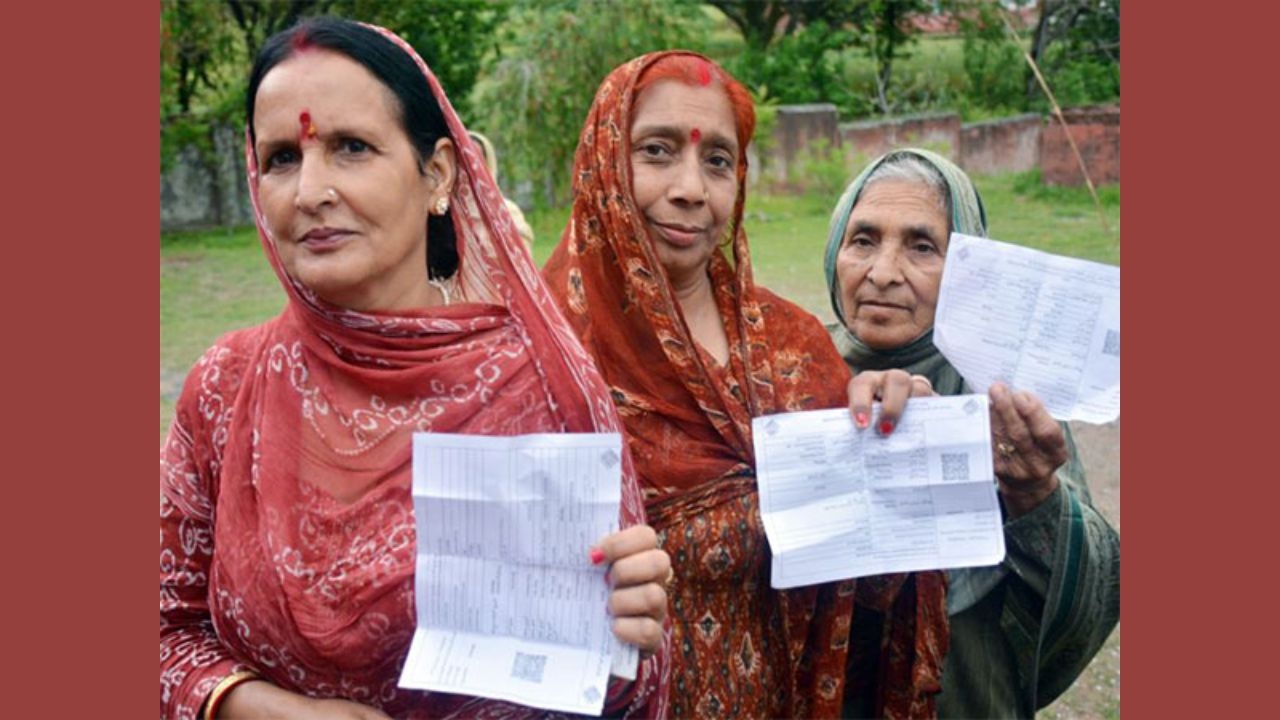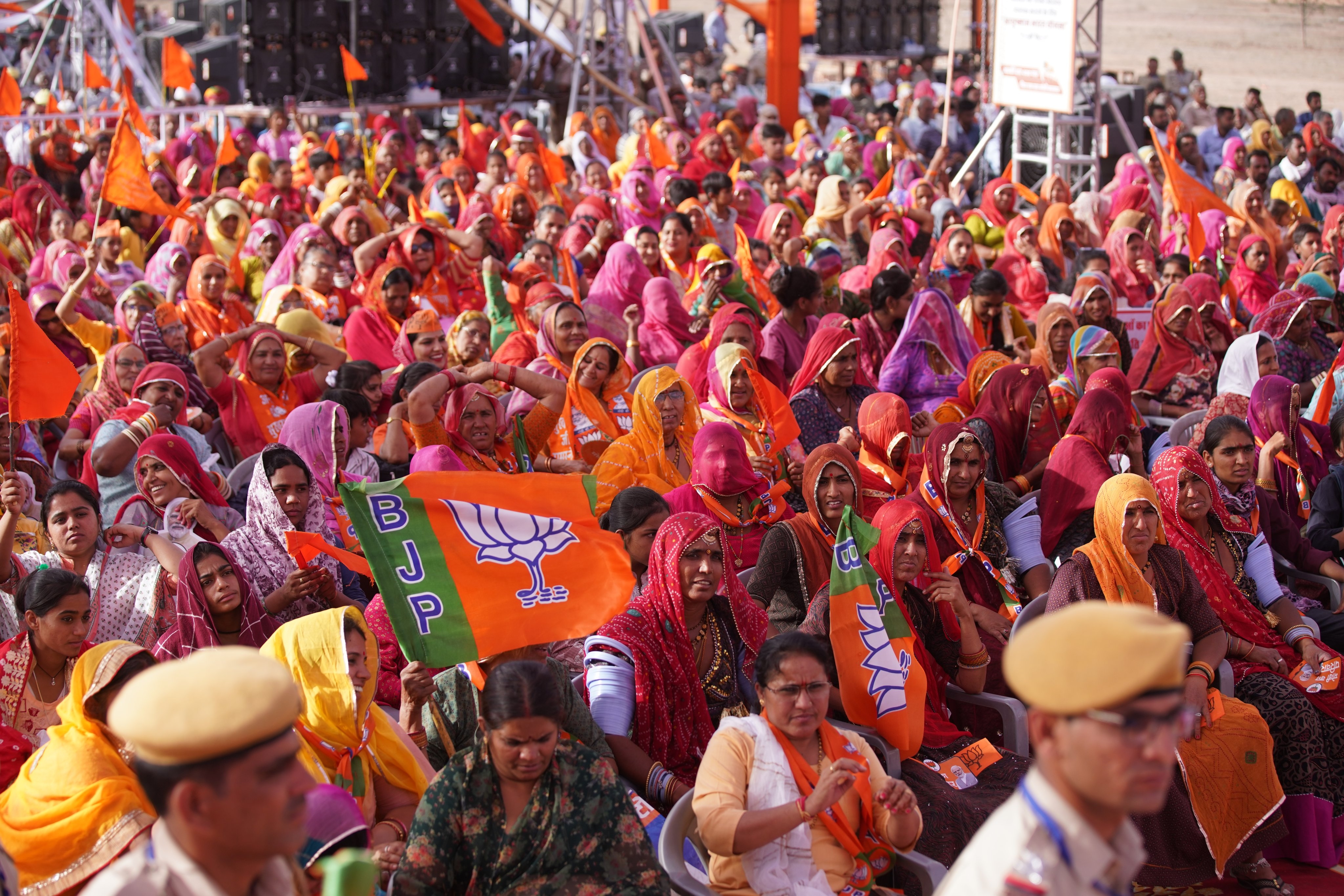
Assam results show that the idea of coalitions is here to stay. Moreover, it also speaks about how alliances stitched together smartly, can weather any odds and lead to easy victories. After all, the BJP did not have the kind of support systems at the ground level, unlike the Congress, which has been in power for the last three terms.
While the BJP put up a stellar performance, having won or leading on 61 seats, just three short of majority, its alliance partners have also come out with exemplary results. A massive jump from the five seats that the BJP had in the outgoing Assembly out of a total of 126.
Let's take a cursory look at the vote percentage, available at the time of filing this report:
- The BJP alliance had polled only 41.5% of the votes and still bagged an impressive 86 seats
- The Congress and the AIUDF polled 31% and 13% respectively, with the Congress leading on just 24 seats and the AIUDF on 14.
- BPF, alone, with just 3.9% votes, on the other hand, has managed to sweep Bodoland, with 12 seats.
- The AGP, which polled 8.2%, is ahead on 14.
Such is the power of regional players who have small but strong pockets of influence. The BJP also managed to get the support of smaller players from the Rabha and the Tiwa tribes.
"When we were crafting the strategy, the state unit was totally against allying with the AGP," a BJP strategist points out. AGP was indeed seen as a spent force, when it could not even open its account, in the last Lok Sabha elections. "People did not read the fine print," the BJP strategist says while pointing out that the party which was born out of the Assam movement had polled an impressive five lakh votes even in an election which was largely seen as Narendra Modi versus the others. "Sometime the rhetoric drowns logic. That is why we had to actually convince the workers and the leaders with the data," the strategist says.
The idea seems to have worked despite clear differences between both the alliance partners on key issues like maintaining the spirit of the Assam Accord. While the AGP is against granting citizenship rights to anyone who has come and settled in Assam after 1971, the BJP recently went ahead with a Central Government notification which paved way for citizenship rights to persecuted Hindus who have migrated from neighbouring Bangladesh.
Also, with Prafulla Kumar Mahanta, looking forward to a stint at one of the Raj Bhawans as a BJP insider pointed out, and wanting to accommodate his son and other senior leaders in the state cabinet, the party which was being written off is here to stay.
Samujjal Bhattacharya, the powerful advisor to All Assam Students Union (AASU), the influential students outfit which has been waging a battle against illegal immigration since the days of the Assam movement, says that this election was fought on the core issue of protecting the indigenous Ahomiya identity. He says the illegal immigrants have been allowed to cast their votes and the threat that they may rule Assam is what prompted the indigenous groups to consolidate. "This is also why AGP performed well," Bhattacharya says while pointing out that they will start putting pressure on the new government to implement the Assam Accord and act against 'Bangladeshis' including the Hindus who have come and settled after 1971. "It was part of their vision document," Bhattacharya says.
The alliance's tirade against illegal immigrants has also led to the support of indigenous Muslims, who too, have been feeling threatened by the Bengali speaking Muslims. The AASU too, had appealed to the indigenous groups to come out and caste their vote in large numbers, Bhattacharya told Catch.
Congress wiped out in Bodoland
Even in Bodoland, the insurgency hit autonomous council, where the BJP aligned with the Bodoland Peoples Front, a party born out of the violent struggle, the alliance has decimated the Congress which had stitched an alliance with the United People's Party (UPP). "While there was huge anti-incumbency against the BPF which rules the autonomous council, the BJP's agenda managed to neutralise it," the BJP strategist points out.
The alliance with the BJP also ensured that all the other groups in Bodoland -- excluding majority Bodos and Muslims - the Rajbongshis, the Nepalese, Adivasis, supported the alliance, says Professor Anil Bodo. He explained how a huge number of people wanted change in the state government and BJP appealed to them. "The Muslim voters got divided between the AIUDF, the Congress and the BPF, while a lot of Bodos, who were not happy with the BPF went with the UPP," Bodo says.
The Bodos just comprise over 20 per cent of the total population in Bodoland and a lot of them who still want a separate state, were supporting the UPP, which still supports the demand. "The UPP is a rookie when it comes to realities of electoral politics," Bodo says. He explained how BPF leadership realised that their alliance with the Congress would not get them anywhere in the election owing to anti-incumbency and withdrew in the nick of time.
"We had also taken a lot of innovative steps to appeal to the local sentiments," the BJP strategist says while explaining how the BJP put out ads in the Bodo language and how there was a separate manifesto for the area promising infrastructure and employment. In an area, where violence targetting the non-Bodo population was at least routine till the BJP-led Union Government started a full blown operation last year led by the Army, and the paramilitary, a lot of people may have also voted for the BPF just for the sake of their security. Edited by Sahil Bhalla
First published: 19 May 2016, 8:38 IST

![BJP's Kapil Mishra recreates Shankar Mahadevan’s ‘Breathless’ song to highlight Delhi pollution [WATCH] BJP's Kapil Mishra recreates Shankar Mahadevan’s ‘Breathless’ song to highlight Delhi pollution [WATCH]](http://images.catchnews.com/upload/2022/11/03/kapil-mishra_240884_300x172.png)

![Anupam Kher shares pictures of his toned body on 67th birthday [MUST SEE] Anupam Kher shares pictures of his toned body on 67th birthday [MUST SEE]](http://images.catchnews.com/upload/2022/03/07/Anupam_kher_231145_300x172.jpg)






